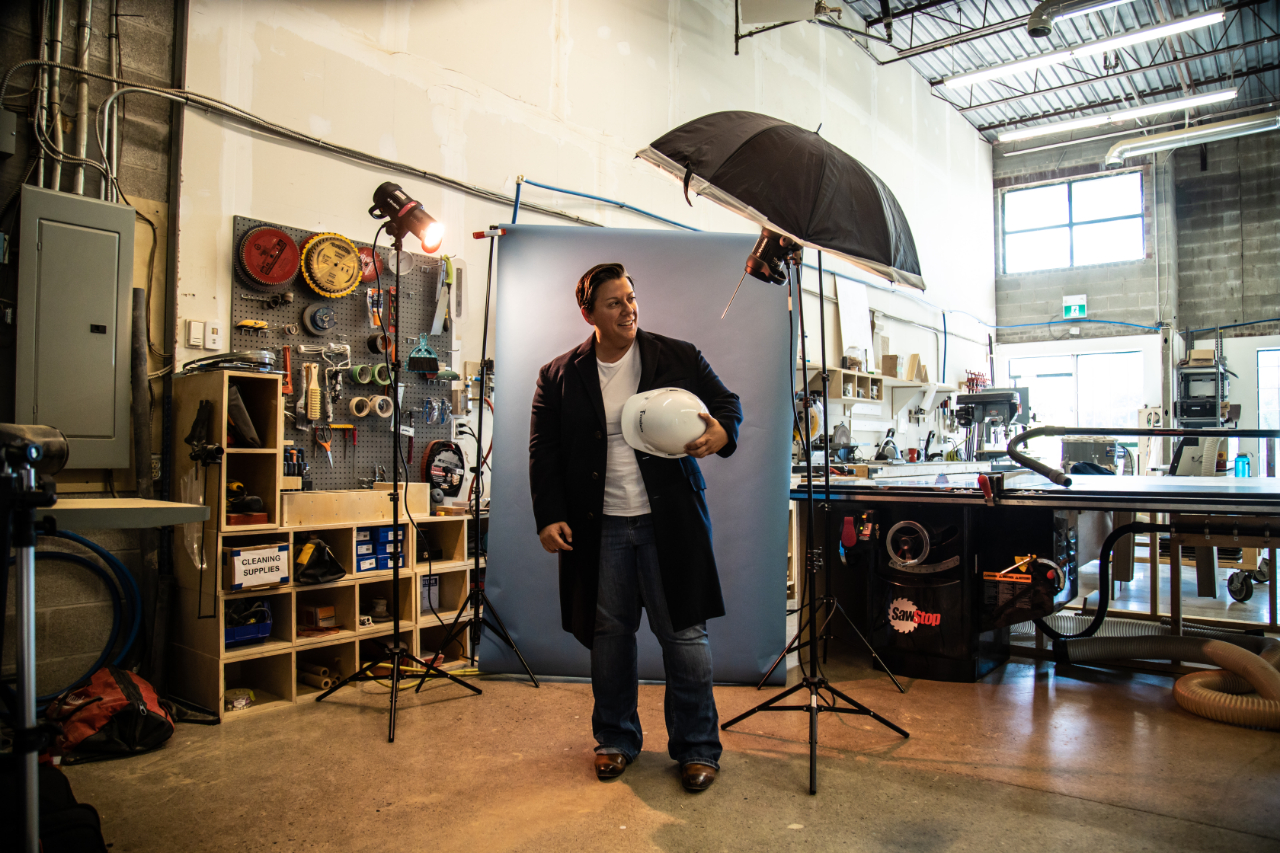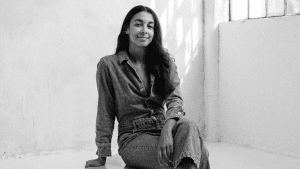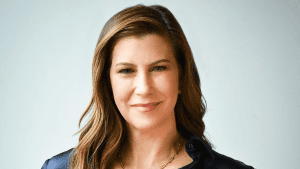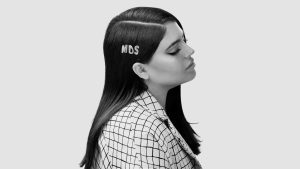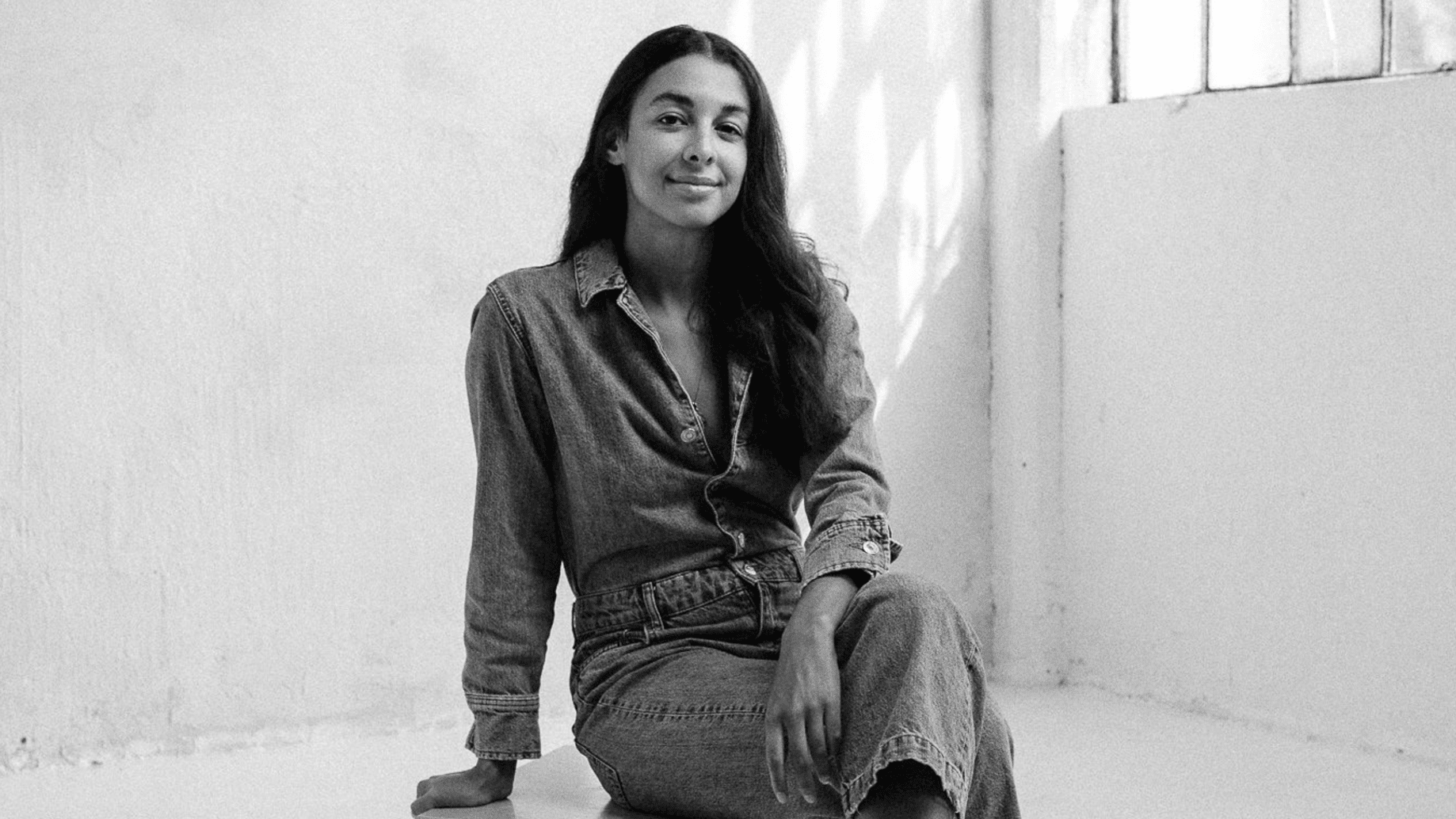[vc_row][vc_column][vc_separator color=”blue”][vc_column_text]Reports have shown that there is a desperate need for more skilled workers in Canada. The shock value of these reports is that this need can be fulfilled by simply attracting and including more women into the industry. Since the outbreak of the COVID-19 disease, an unprecedented need for essential blue collar professionals has been recognized. However these professionals are facing continued difficulties ranging from inadequate pay to access to restrooms.
Since the age of 19 Mandy Rennehan has been a champion for diversity within the blue collar and trades industry. Commonly referred to as the ‘Blue Collar CEO’, Rennehan is redefining what it means to be a trades professional. Her mission being to de-stigmatize blue collar professions as being second class and for men. Through this Rennehan hopes to change the age old question, ‘What do you want to be when you grow up?’
Rennehan’s passion has led her to launch Freshco, Canada’s number one retail maintenance and construction company, from a small fishing town in Nova Scotia.
“I became the dental hygienist and the plastic surgeon of retail,” says Rennehan, “Anything that you can imagine that can go wrong in any form of retail, like a roof leak, bathrooms overflowing…We do every part of emergency service maintenance for fortune 500 retailers. Then on top of that, they will come [to Freshco] when they want a facelift or when they want to rebrand.”
Founded in 1995, Rennehan created the company making room for what she identified to be missing within the trades industry. At a time when no women occupied space in the field, Freshco emerged as a company not only led by a woman, but with principles of equal opportunity and respect at its core. Unfortunately, although improvements have been seen in equalizing gender parity and other forms of discrimination, decades later blue collared professionals are still facing dealing a wide spread lack of acknowledgement.
This the systemic imbalance that is now being recognized as a result of the pandemic, is what has been driving Rennehan’s career for over 20 years. We sat down with the Blue Collar CEO to discuss her career long dedication to diversity and what blue collar professionals need now in the wake of COVID-19. [/vc_column_text][/vc_column][/vc_row][vc_row][vc_column][vc_text_separator title=”Q & A” color=”blue”][vc_single_image image=”17147″ img_size=”full”][vc_column_text]Your career and how you started at 19. Starting a business in any capacity isn’t easy. What was the course of starting your company and what drove you at such a young age?
From a very young age when I grew up in Yarmouth, a Nova Scotian fishing village, I was always different. I came from a very poor family, we never knew when the next load of groceries were coming. The more I watched my father, the more I was intrigued to find ways to help my family.
So you could say that I didn’t pick entrepreneurship, it picked me. I worked on dairy farms. I was in the four H program. I learned how to train horses. I mean, you name it. I taught myself how to basically do anything. But what I was the most interested in was construction
How did you navigate and deal with instances of prejudice when you first began?
When I used to show up what was interesting was that one of the biggest issues that I ran into was not the fact that I was female and gay. It was the fact that I was young.
People are really drawn to something that they know is real rather than something that isn’t. Back then I was [authentic], I just didn’t know I was that. And so there I was negotiating at 23, 24 years old in a room full of corporate America. A lot of it was about my intent. My intent was to help my parents, my intent was, is to build on my ideas because I innately was just wired to be this entrepreneur in an industry that had never had a female spin on it.
Where does your dedication to being an ambassador for the blue collared workers come from and why do you believe that we are in the best place to increase female trade careers?
My mandate to redefine blue collar and change the answer to “what do you want to be when you grow up” and push the women in this industry from four percent to 40% within the next decade is for the simple fact that I’ve proven to the men in the industry that this isn’t just about gender parity. It is the fact that women bring a whole level of skills to this industry that have never been recognized.
When I first came into it, there were zero percent of women in it. Now, we’re up to four to five percent and I see in the next couple of years being up to seven or 8 percent. It’s really about the power of us exposing young women to the possibilities of the trades field. [/vc_column_text][/vc_column][/vc_row][vc_row][vc_column width=”1/2″][vc_column_text]We have seen an overwhelming need for blue collar workers in the current pandemic. What are your thoughts on the wage disparities and stigma between blue collar workers and white?
This pandemic has just absolutely validated everything I’ve been talking about for the last four years as to why people wouldn’t want to go into this industry. The same people that we are paying $15 an hour are the heroes of our society right now. These people are in direct harm’s way. We expect them to care and contribute overtime to sanitize and use the right equipment but we’re not treating them like professionals.[/vc_column_text][/vc_column][vc_column width=”1/2″][vc_single_image image=”17146″ img_size=”full”][/vc_column][/vc_row][vc_row][vc_column][vc_column_text]How do you expect a truck driver or a courier driver who’s weaving in and out of the madness trying to do their job to feel respected and valued when we’re not even giving them a place to go to the washroom? I’m bringing to the table the revelation that we have absolutely violated them as human beings. The people in the blue collar industry are not just workers, they’re professionals in what they do. And we need to start treating these people like they’re equals.[/vc_column_text][vc_column_text]How can this pandemic be an agent of change?
I’m also a humanitarian that sees that this is a social change, that this pandemic sadly is going to help kickstart. Because the reality is fear in oneself is sometimes the only knee jerk reaction that can really open our eyes to everything around us. When things aren’t perfect and become a necessity and not a luxury, people open their eyes.
The reality is that it wasn’t until we were all quarantined at home and over social media people began saying, ‘Hey, these people working at shelters, these people working in grocery stores, in manufacturing facilities, people out there in the trucking industry, people out here cleaning out amongst COVID are of similar importance to the nurses and doctors and are also out here actually cleaning, with very little PPE [Personal Protective Equipment].’ So they’re putting their lives at risk because they don’t have the ability to just stop it. [/vc_column_text][vc_single_image image=”17148″ img_size=”full”][vc_separator color=”blue”][vc_column_text]How do you create change within the industry with your own company so that you are actively fighting these systematic issues?
I’ve often said to my people, I was diverse before diversity was a great idea. I was inclusive before it was a stroke of genius. It’s just inherently who I am. I don’t pick people, for any other reason than because they’re amazing. I pick people based on their ambition and their personality. I don’t pick it based on where they grew up and what their resume says. So when you look at how I built this company, I built it based on who I was, and my character principles at the moment, not knowing that today there’d be a hundred books on how to hire right.
I built this company based on the fact that I didn’t care if you were a misfit, I didn’t care if you were gay, I didn’t care if you came from the other side of the world…Black, Brown or Chinese. I didn’t care. I just wanted to love you because you loved what I was doing. When you take that bias out of it, my intent has always been very focused on treating people properly and seeing the things in themselves that they couldn’t see.
What can people do now to help essential working professionals?
Teaching your kids about the other heroes in our society that are helping is important. We have viruses and flu all year round that shut down businesses of different sizes. We want to be able to teach new patterns that will educate kids on why and how cleaning and sanitizing spaces is essential for our own health. What that also does is communicate at a young age, why going into any profession in the blue collar industry, will give them purpose. It will give them creativity beyond other industries and more.
I think that we need to realize, there’s no average Joe. We keep calling people workers, but let’s call them professionals in their field. Just like we call a lawyer and just like we call a nurse. Dignity in work directly affects performance and these professionals deserve our respect. [/vc_column_text][/vc_column][/vc_row]


